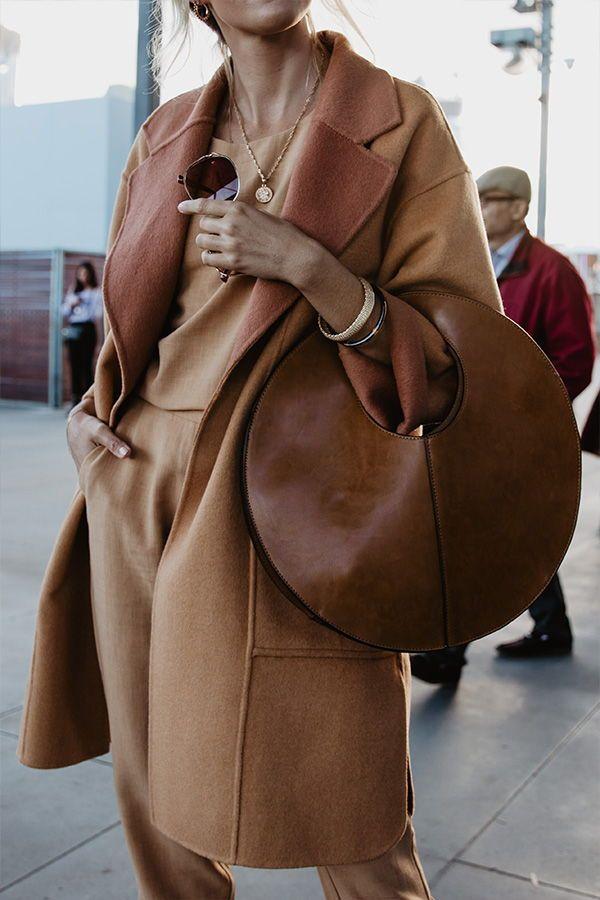David Salvador 3/6/2020Comentarios
Adapt that not reinvent yourself, listen to the customer, value the product, bet on health in the kitchen, be a better entrepreneur.These are some of the reflections as an augury that the speakers of Gastronomika Live have commented on the future of gastronomy in this uncertain was post covid-19.Although the webinars of this first digital Congress of gastronomy had other titles and themes few were the guests who did not want to participate with predictions or beliefs of what can happen tomorrow, "a future that we can dream and build as we want."Andoni Luis Aduriz.
In addition to Rentería, they presuppose with criteria Ferran Adria, Mauro Collagreco, Dan Barber, Josep Roca, Pedro Subijana, Angel León, Enrique Olvera or Pierre Gagnaire.All opinions that help draw a path "that we must do more together than ever."If for something this crisis has served - for the chef of the best restaurant in the world - "it is to unite the sector."Let's unite predictions and glimpse.
Paco Morales
He was one of the last speakers, one of the most incisive in his comments.His comments, as his Maca de Castro, Javier Olleros, Ricard Camarena or Elena Arzak made colleagues, dealing with the importance of the product.“Direct kitchen, the product, is the one that will have the most value.The new luxury will be to know how to enhance the essence and taste of the product, which gives an incalculable value to the plate.It is the moment of producers and artisans, more than ever.Our kitchen is only brilliant thanks to them, ”commented Noor's chef ** (Córdoba), who refused to reinvent himself.“I will not reinvent myself, I will not abandon my essence.I will simply adapt, I will make touch -ups when necessary and cling to work, as our parents and grandparents did before. ”
Pierre Gagnaire
Nor in favor of the reinvention was the Frenchman Pierre Gagnaire, one of the stars of Congress.“Young people add quickly to fashions and now there is kilometer zero.It is true that it has occurred, and I am glad for the recognition it supposes for the product and the local producer, but now everyone believes that to cook you have to be a gardener.It is not like this.Each one must defend their kitchen, and they all fit. ”In general, and as a bet, “there may be a certain turn.People can rule out vulgar places, false and exuberant, prevailing sincerity and quality.The locals that do not make sense, not to have love, will have more difficulties. ”
Enrique Olvera
From Mexico, the Pujol chef (23rd best restaurant in the world) delved into the proximity, product and customer ("we need a single chain of producers, customers and chefs to get out of it"), and in the healthy as a goal.“The future of haute cuisine must be healthy.For a long time we have only thought about demonstrating our capabilities cooking, but now health is the first.And haute cuisine must become something that does well, that will regenerate you, because we have access to high quality products.We must be the spearhead of the struggle for health. ”And he also played looking at the premises.“If we want to remain in force as restaurants we have to throw deeper roots within our communities.Tourists will return but the center of our restaurants will not be more ”.
Mitsuharu Micha Tsumura

Another reference of American gastronomy, in this case of Peruvian Nikkei cuisine that raised as a solution: “Nikkei cuisine is based on the use of humble products, in tradition, and makes sense in many formats.So it is perfect for this time when the kitchen evolves towards the casual, towards the democratic, the accessible, towards the permanence in time.The spoon come back, the homemade, the big portions.Maido (its gastronomic restaurant) will exist, but our dishes have to reach all houses in another format. ”For Micha you must "democratize the delicious", and they will get "small concepts with small investments, of a single quality product and at an accessible price."
Dan Barber
We continue in the American continent, in this case in the US.From New York, Dan Barber (Blue Hill at Stone Barns) defended the chef's environmental awareness, “essential at times where pandemic has shown that the food system we have does not work, and that it is necessarysustainable food ”.For Barber, the chefs must be the first to rethink the food model to prevail and have to advocate for a "healthy and exquisite gastronomy at the same time."It is a whole.Without one, the other may not exist."The elections we take in our restaurants will decide the future of the food system and will then move to the rest of the population."
Jorge David
El televisivo cocinero Jorge David (Robin Food) criticaba la situación vivida hasta ahora, en la que “el excesivo protagonismo de algunos chefs, la ostentación y el seguir las modas sin más no aporta nada positivo. Estábamos empachados y habíamos perdido perspectiva”. Reconciliarse con el pasado es una de las claves para el futuro, según el vasco. “No hace tanto, aquí no sabíamos nada de cocina y, por un momento, nos hemos creído que lo éramos todo”. Toca ser modestos y honestos. “El virus nos ha devuelto a la realidad. Así que a trabajar, a diferenciarse y a huir de las modas”.
Henrique Sá Pessoa
The Portuguese Henrique Sá Pessoa commented in his presentation that one of the gastronomic trends that can mark the immediate future is "the potentiation of memory cuisine."Knowing that now the public will be more local, "maybe that memory kitchen is more present."Sá Pessoa confessed that Alma ** (Lisbon) will open with a shortin a tasting menu ”.
Viviana Varese
Also Viviana Verese (Viva*, Milan) saw the need to lower the prices of the letter dishes in half ("which will also simplify to reduce costs"), in addition to the economic need to diversify the business (with a line ofecommerce and chef at home) and insist on the care of the environment."It is the first reading we can get from this pandemic."The Italian bet on zero plastic policy with a short menu "so that you do not have to store plastic product" and the use of ecological transport in all its services.
Pedro Subijana
Member of the Technical Committee of San Sebastian Gastronomika, Pedro Subijana nuanced when they told him about the security to be sued in restaurants.“We have to give it but neither do the restaurant into a hospital.In the background, it is about offering professionalism, which is what we know how to do. ”"Within our sector there are many types of business, and what the diner wants and wants is to get well."Adapt with culinary changes to the new era?"I do not know.What we will do is reintegrate the letter in Akelarre, which only worked with tasting menu.It is a change, something, but there are many other sticks that we are not going to touch, ”he warned without alarmism.
Toni Massanés
A Mexican of healthy cuisine spoke, he remarked him as a future one of the greatest theorists of homeland gastronomy.For the director of the Alicia Foundation, Toni Massanés, to achieve good food security, "that everyone eats better, will become a defining element of the kitchen of the future."And he warned the collective: "You have to be agile and adapt because the gastronomic experience will change more than we believe."
Lourdes Muñoz
The commercial and events director of the Dani García group, Lourdes Muñoz, also urged reinvention.“Creativity will be more important than ever.We will think of new tables or presentations, new ideas, nothing in the background that we do not have been doing in recent years. ”Technology, yes, "will gain ground" in the future that Andalusian sees with positivity, "there will be customers and money.This has simply changed hands, so it will be more important than ever the commercial strategy of each company. ”
Andoni Luis Aduriz
"He who thinks that he can rebuild things as they were before the crisis does not realize that the opportunity to rebuild them is lost as they dreamed."He had said it, she repeated it.Without specific prophecies, Andoni Luis Aduriz encouraged professionals not to faint, to mark goals and fight them, not to discard any idea as a pilgrim that seems."I prefer that my team is wrong that I don't try."
Angel León
Aponiente's chef, a historical defender of the product, congratulated himself on the growing awareness of respect, for what his will to continue doing what he has always done.“I don't want to be conservative, I've never been and now less.We cannot fall into the obvious of doing all the same.Spain was doing well.We should not change.We, particularly, must keep telling secrets. ”
Josep Roca
It was the turn of anticipating how the room is seen in this present post covid.The sommelier of El Celler de Can Roca chose to wear this new situation "with more aesthetic, more poetic and more gestures."His referent for this new stage is the Japanese hospitality ritual, giving priority to choreography.“We will recover the Mediterranean contact, but we can also learn new ways to communicate with the client.A silence can also contain a lot of information. ”Roca also explained that he will opt for the elaboration of personalized and disposable letters.Made on recyclable paper, they will contain a seed "so that the customer can take it and the letter ends up fructifying in basil, leek ...".
Álex Atala
From Brazil, the chef of D.O.M (Sao Paulo) returned to pivot the future on the product."Luxury is being creative, and luxury, more from now on, will be the ingredients, on all those that until now we was missing."With them, Atala pointed to erect “regenerative kitchens, for nature and for the human being.Kitchens that provide values.May the customer leave the restaurant with a good taste and with a reflection.Because the kitchen is not just ingredients, ”he said.
Ferran Adria
Jesús Sánchez o Quique Dacosta también hablaron de ello pero fue Ferran Adria quien más incidió en la creciente importancia de la formación empresarial del restaurador. “Se deben hacer números y sacar tus conclusiones, ahora más que nunca el chef debe ser empresario”. Adrià también apuntaba modelos de restaurantes “que recomendaría para la gente que quiera lanzarse ahora en este mundo”. Se trata de “espacios pequeños, de casi solo una barra pero de alta calidad gastronómica, caso de Bagá (Jaén) o Direkte Boqueria (Barcelona)”. El ex chef de elBulli pronosticaba que lo online ha llegado para quedarse, pero que “la experiencia de un restaurante, como no puede ser digital, sobrevivirá”. Optimista era, pero con matices: “Si trabajabas mucho, trabajarás bien; si trabajabas bien, lo harás regular; si lo hacías regular, lo harás mal”.
Mauro Collagreco
We end this review of auguries with those of the chef of the best restaurant in the world, first rapporteur of Gastronomika Live. The Argentine resident in France was blunt and, in early May, when he made the presentation, he made the attendees think: “How much are we willing to sacrifice? Can we do without our comfort? It is not a cost problem, it is a matter of really wanting a change. And that change, with creativity, flexibility and ability to adapt, will lead us to survival. ” Collagreco appealed to the union of the sector and work for the product and the environment, in addition to indicating how the lodging of its customers was proposed. In the Josep Roca line, "we are working to see how we transform the difficulty we find when opening in something positive, in an act of poetry and beauty." I collapse and his team consider installing "beautiful" panels, created by artists to separate the tables, "transforming the bad into something good." Another example: instead of geling so that the client wash his hands, "get that same goal with a pleasant ritual in a flower tray." Of the demand, virtue.




